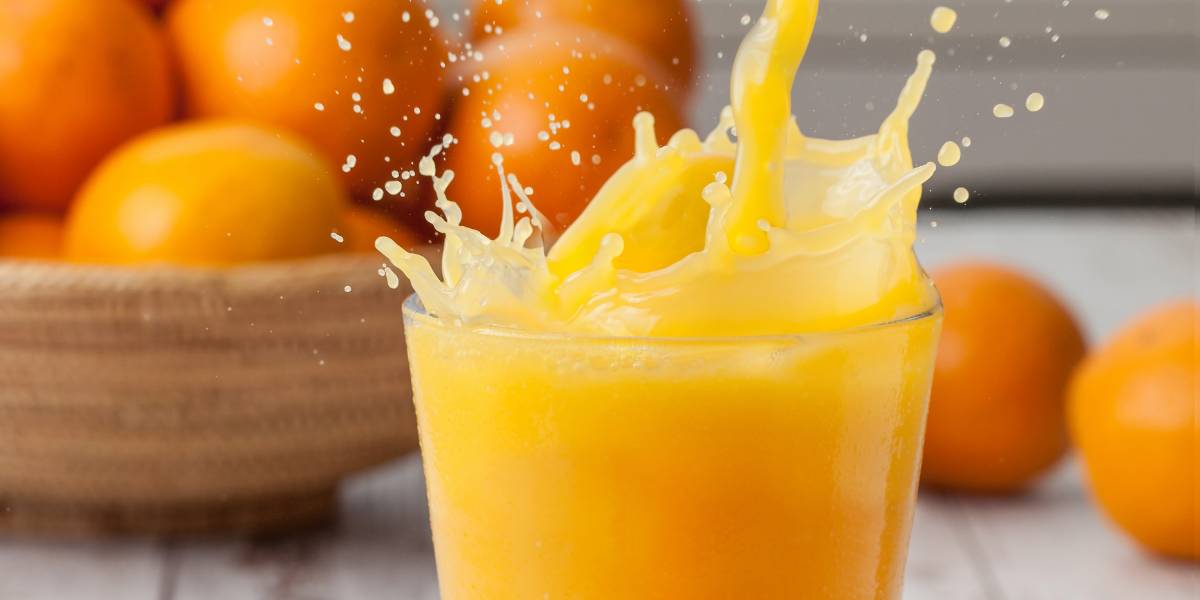- Juice-only diets can increase inflammation and negatively affect gut and oral bacteria in as little as three days.
- Fibre is crucial for a healthy microbiome, and juicing removes much of it – allowing harmful bacteria to thrive.
- Juicing may impact more than digestion, with potential effects on metabolism, immunity and even cognitive health.
Many people turn to juice cleanses as a way to detox or improve their health. However, a new study from Northwestern University suggests that consuming only fruit and vegetable juice for just three days may have the opposite effect, disrupting gut and oral bacteria and increasing inflammation.
The research, published in Nutrients, examined how different diets affect the microbiome.
The study involved three groups of healthy adults: one consuming only juice, another combining juice with whole foods, and a third eating only whole plant-based foods.
By analysing saliva, cheek swabs, and stool samples before, during, and after the diet, scientists identified significant differences in bacterial populations between the groups.
The findings revealed that the juice-only group experienced the greatest increase in bacteria associated with inflammation and gut permeability.
In contrast, the group that consumed whole plant-based foods saw more favourable microbial changes, while the group that paired juice with food experienced some bacterial shifts, though less severe than those in the juice-only group.
- Elderberry juice improves fat burning and gut health among overweight people
- New way to squeeze apples makes apple juice healthier
- Some soft drinks and fruit juices contain alarming levels of toxic metals
These results suggest that a juice diet without fibre may disturb the microbiome, potentially leading to long-term health consequences.
Importance of fibre
One of the key concerns highlighted in the study is the removal of fibre during juicing. Fibre plays an essential role in maintaining gut health by feeding beneficial bacteria, which in turn produce anti-inflammatory compounds such as butyrate.
Without fibre, harmful bacteria that thrive on sugar can multiply, leading to imbalances in the microbiome.
The high sugar content of juice can also disrupt microbial balance, affecting digestion, metabolism, and immune function.
The study suggests that a lack of fibre in the diet may even have implications for mental health, given the well-established connection between gut bacteria and brain function.
Rapid changes in the oral microbiome
While the gut microbiome showed relatively gradual changes, the oral microbiome responded far more quickly to the juice-only diet.
Researchers observed a reduction in beneficial Firmicutes bacteria and an increase in Proteobacteria, a group of bacteria commonly linked to inflammation.
This rapid shift suggests that dietary changes can have an almost immediate impact on microbial populations in the mouth, which may, in turn, influence oral and overall health.
The study reinforces the idea that the oral microbiome serves as a sensitive indicator of dietary effects.
Implications for long-term health
Dr Melinda Ring, senior author of the study and director of the Osher Center for Integrative Health at Northwestern University, emphasised that while juicing is often perceived as a health cleanse, the findings suggest otherwise.
- Fruit and vegetables ordered to be on new Welsh chip shop’s menu
- Increasing fruit intake can prevent poor mental health later in life
- Fruit bats’ bodies have adapted to control blood sugar levels without fail
“Most people think of juicing as a healthy cleanse, but this study offers a reality check. Consuming large amounts of juice without fibre may lead to microbiome imbalances that could have negative consequences, such as inflammation and reduced gut health,” she said.
First author Maria Luisa Savo Sardaro echoed this concern, noting that the sugar and carbohydrate content of juice diets plays a key role in shaping microbial dynamics in both the gut and oral cavity.
The findings suggest that greater awareness is needed when considering the long-term effects of juice consumption, particularly among children, who often drink juice as a substitute for whole fruit.
Rather than eliminating juice entirely, the study suggests a more balanced approach.
Blending, rather than juicing, retains fibre and may help maintain microbial balance.
Pairing juice with whole foods can also mitigate some of the negative effects associated with a juice-only diet.
While further studies are needed to explore the long-term effects of juice diets, the evidence suggests that relying solely on juice for nutrition may not be the health boost many believe it to be.




